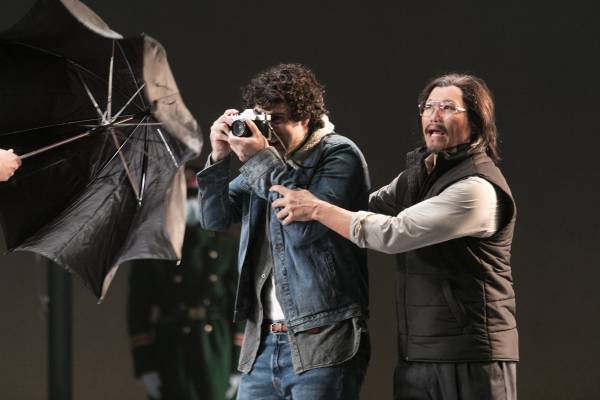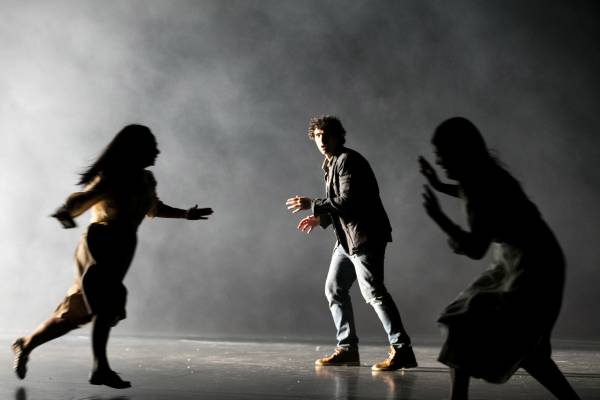Roslyn Packer Theatre, March 4
7.5/10

A single man carrying two plastic shopping bags confronts the first in a column of tanks. The Tiananmen Square image spoke not only of individual frailty facing the clanking steel of monolithic power, but also of sufficient moral outrage to invert fear. Chimerica is the answer to some what-if questions that British playwright Lucy Kirkwood poses about that individual, universally known as Tankman.
At over three hours (including interval) it’s a long answer, and equally broad in scope. It ranges from Tiananmen protesters to journalists; from Chinese oppression to US politics; from the two superpowers’ evolving relationship to the evolution of a love affair.
Kirkwood hinges her play around a whodunit plot in which Joe (Mark Leonard Winter), a US press photographer, tries to discover Tankman’s identity. Her approach is heavily cinematic, and director Kip Williams (for Sydney Theatre Company) uses 21 NIDA students to amass a total cast of 33, allowing him to muster some striking images on a bare stage, notably in depicting the protest and massacre.

Kirkwood brilliantly pens different humour for her American, Chinese and British characters, a crowning achievement being Frank, Joe’s editor: bullish and harassed, he surges into our faces in Tony Cogin’s performance. Winter makes Joe a likable loser with an obsession of mounting selfishness, and Brent Hill is his wisecracking, “Why me?” journalist sidekick. Jason Chong convincingly inhabits the genial, beer-drinking, broken-hearted idealist Zhang Lin, and Geraldine Hakewill is a pitch-perfect Tessa, the chorus-like English woman who falls for Joe in a tangle of conceit and insecurities.
Flashbacks apart the play is set in 2012, and Trump’s presidency creates some flaring resonances. Yet despite its ingenuity, insights, humanity and the many theatrical delights of this staging, the work’s sheer expansiveness yearns for a screen (and indeed Kirkwood is currently adapting it). People, places, times and themes crowd the suspenseful plotting like onlookers, and Kirkwood kinks the tail of her own story. A tighter, more potent play was to be had by zooming in on a handful of characters.